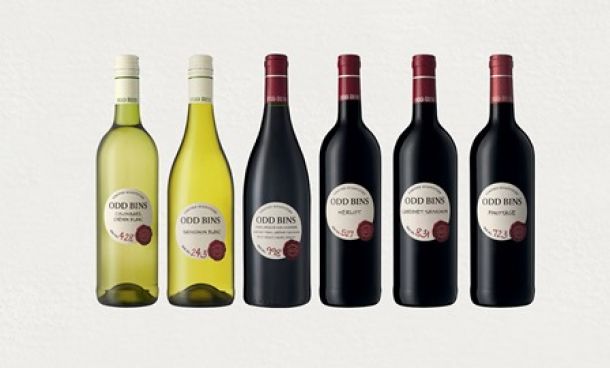Soweto emerging for generation of SA wine drinkers
Relaxing by an exhibition stand at a wine festival in South Africa, Tebogo Sebati sips a glass of Cabernet Sauvignon and asks the server about its age and origin.
He’s not in Johannesburg or Cape Town. He’s in Soweto.
“I have been drinking ciders for more than two decades,” says the 38-year-old resident of the South African township before moving on to a Merlot. “Because of the festival, I now know what wines are suitable when I want to sweep a woman off her feet.”
The Soweto Wine Festival is in its 11th year, with about 950 wines on offer, and this month attracted near-record numbers despite unseasonably chilly weather. About 7 000 people attended the three-day event, according to co-owner Mnikelo Mangciphu, compared with 1 500 in its opening year.
Broadening the appeal of wine and spirits to emergent black communities like Soweto, which under white-minority rule was a collection of mostly poverty-stricken settlements, is vital for the growth prospects of companies such as Distell, South Africa’s biggest producer.
Consumer confidence in the economy dropped to a 14-year low in the second quarter of this year as unemployment of 25%, power cuts and rising electricity prices put pressure on shoppers and their drinking budgets.
Wine is growing in popularity among South Africa’s rising affluent classes, particularly among the black population.
Just over two decades since the end of the system known as apartheid, about 5.3 million black adults can be considered middle-class, based on criteria including income, housing, and education, according to the University of Cape Town Unilever Institute of Strategic Marketing.
That compares with about 2.7 million middle-class white South African adults in the country, which has a population of 55 million.
Under apartheid, blacks would gather to drink home-brewed beer in unlicensed township bars, known as shebeens, because they were banned from establishments reserved for those of European descent. Now many of those venues have permits to sell alcohol and are able to compete with pubs and bars.
“Wine was previously seen as a drink for the affluent,” says Mangciphu, who was raised in Soweto, once a home to former president Nelson Mandela and fellow Nobel Peace Prize winner Desmond Tutu. “Not as many black people drank it and it was not sold in our backyard, so it was seen as foreign and people didn’t support it.”
As well as the Soweto Wine Festival, Mangciphu, 55, owns the township’s Morara Wines Emporium shop and last year partnered with UK company Accolade Wines to open a wine bar on the same block. He is also planning to add whiskey to his offering.
South Africa is the world’s seventh-largest wine producer by volume, yet its 2014 consumption of an average 7.5 litres per person trailed countries including Portugal, at 41.8 litres, and Argentina, with 24.6 litres, according to South African Wine Industry Information & Systems.
Beer and ciders constitute more than 85% of the alcohol consumed in South Africa, Euromonitor International said, playing into the hands of SABMiller the world’s second-biggest brewer.
SABMiller controls about 90% of the country’s beer market and is a takeover target for larger competitor Anheuser-Busch InBev NV.
To bridge the gap, wine makers and distillers are increasingly promoting their alcohol as aspirational, even as brewers develop their own high-end brands to boost profit margins. Local retailers such as Shoprite and Walmart Stores unit Massmart hold wine and whiskey promotions to showcase their stock.
“We have expanded aggressively our mainstream market presence,” Richard Rushton, the managing director of Distell, based in the wineland town of Stellenbosch, said by phone. “As the middle class grows, choices do become more important to consumers.”
“Whiskey is certainly seen as an aspirational drink and South Africa still has to catch up with other whiskey-drinking countries,” said Valentine Maseko, the 29-year-old manager of Whisky Brothers in Johannesburg’s Hyde Park Corner shopping mall, where Scottish whiskies Glendronach and BenRiach and Taiwan’s Kavalan are on the rise.
“We are seeing drinkers develop an increased palate for whiskey.”
Whiskey festivals are starting up in Pretoria and Durban and in Johannesburg the number per year is rising, Maseko said. The growing number of festivals appeals to Tebogo Sebati, who says his taste for wine has grown despite an unpleasant first experience.
“At first it was bitter,” he says. “But ever since I went back to taste it again, I have gone even further and bought my own bottles."
News Category
- International retailers
- On the move
- Awards and achievements
- Legislation
- Wine and liquor
- Africa
- Going green
- Supplier news
- Research tools
- Retailer trading results
- Supply chain
- Innovation and technology
- Economic factors
- Crime and security
- Store Openings
- Marketing and Promotions
- Social Responsibility
- Brand Press Office
Related Articles

Makro secures exclusive rights to SA’s most sou...

Checkers adds 41 new wines to Odd Bins range

With petrol at almost R20 a litre, food prices ...

Petrol price shocker for South Africa


